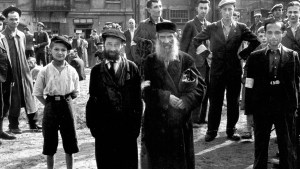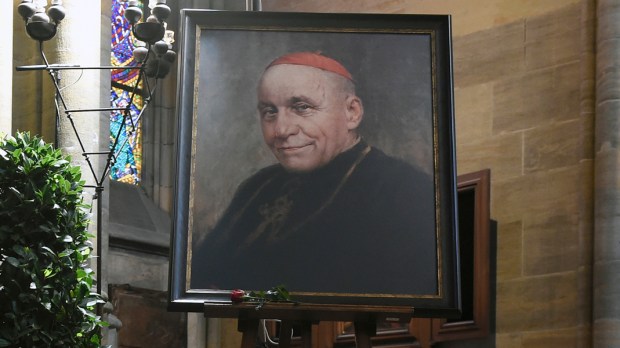According to the Prague Daily Monitor, “The diocesan phase of the process of beatification of Czech Cardinal Josef Beran, which started in 1998, will be completed and the documents sent to the Vatican on his death anniversary on Thursday.”
This coincides with a recent return of Cardinal Beran’s body to the Czech capital of Prague, a request he had inserted into his will. He greatly loved his home country, but was forced into exile because of his opposition to the communist regime in Czechoslovakia. He died in Rome at the age of 80 in 1969.
Beran experienced great persecution during most of the later part of his priesthood. He was ordained in 1911 and worked as a spiritual director and professor for several years, before being named a monsignor in 1936.
Then as World War II progressed, Beran became increasingly defiant to the Nazis. He proclaimed that he would celebrate a Mass for the many prisoners of war and by June 6, 1942, the Nazis arrested him and later sent him to the notorious Dachau concentration camp. Beran nearly died while in captivity, but was able to survive until the camp was liberated in 1945.
Shortly after his return, he was appointed the Archbishop of Prague, but that only brought more persecution from the incoming communist regime. According to Vatican News, “Beran publicly opposed the new regime. He was put under house arrest and moved by the secret police from village to village. Authorities wanted to cut the ties between him and his flock. The regime jailed thousands of Catholic priests, monks, nuns and active Catholic lay people. Communists also confiscated property and destroyed churches and monasteries as they saw the church and devoted Christians as their arch-enemy.”
Beran was eventually able to leave the country for Rome, but only did so in order to gain concessions for the Church in the country. The communists made such concessions with the stipulation that Beran would not be allowed to return. He remained in exile in Rome until his death in 1969.
He was elevated to the level of cardinal in 1965 and was an active participant in the Second Vatican Council. Beran was an ardent supporter of religious freedom and made his voice heard at the Council.
Since his death, Beran’s life has been an inspiration to many, and he is seen as a heroic defender of the Church during a time of such intense persecution in his country.

Read more:
11 Brave religious leaders who saved the Jews during World War II

